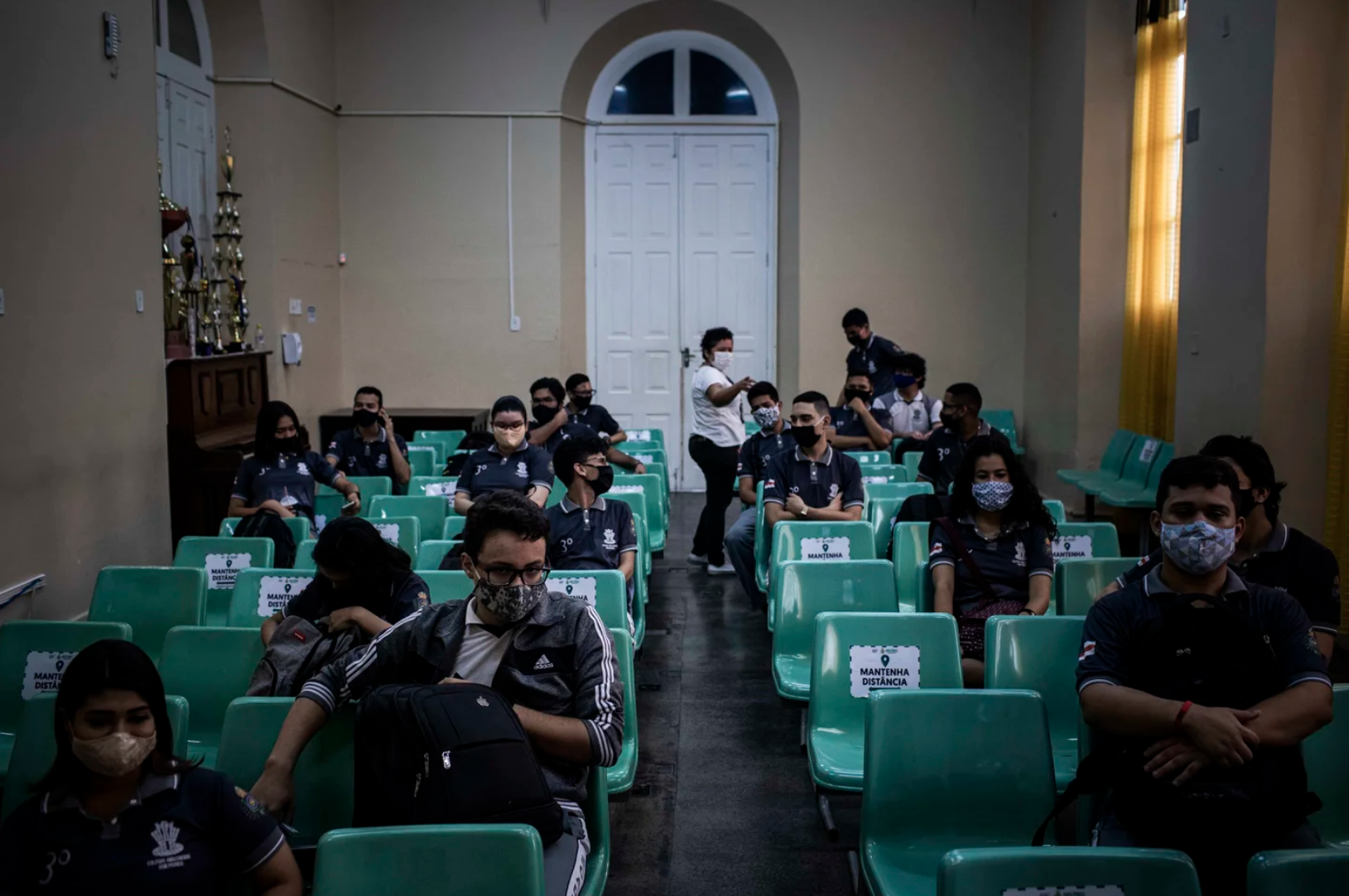There are countless battles being waged by the Lula government and one of them is the urgency surrounding the repeal of the so-called New Secondary Education, or NEM for its acronym in Portuguese, a critical stage of schooling that has multiple functions. Beyond the consolidation of basic knowledge and skills acquired over the years, it plays a key role in later stages of life, since it acts in the formation of citizens capable of making social commitments and enabling entry to both higher education and the labor market.
The NEM was instituted by provisional measure in 2016, during the government of Michel Temer, without consulting the community. The main novelty of the proposal, which began to be implemented in 2021 – in the State of São Paulo – is the curricular flexibility, since it allows students to choose their formative itinerary according to their interests and vocation from the second year onwards.
In practice, the NEM implemented an increase in the number of hours and restructured the curriculum, including offering vocational training to students. This change may sound good, but the problem is that public schools cannot meet the requirements due to a lack of structure and teachers. According to the 2022 School Census, 88% of students enrolled in baccalaureate are in public schools, mostly in schools in charge of the states.
This stage of education in Brazil has historically been marked by challenges such as the democratization of access, dropout rate, teacher training and qualification, school infrastructure, number of classrooms and territorial distribution of schools.
The São Paulo experience has shown that the NEM ignored the reality of almost 90% of the students enrolled in this stage. On the one hand, there is a great lack of infrastructure, training, efficiency and qualification of teachers in accordance with the requirements of the itineraries. On the other hand, on the part of the students, there is the need to work, which prevents or hinders full-time attendance, which adds to the lack of motivation due to the lack of itineraries offered in many schools.
This offer depends on the reality of each center. In the case of public schools suffering from a shortage of natural sciences and humanities teachers, sometimes the only option available to students is the professional itinerary, which is offered by teachers who should be teaching other subjects.
There is also an increase the schools’ downtime, reflecting the difficulties they face in offering the contents of the different itineraries and the overwork of the teaching staff. This disrupts the career of the teacher, now forced to teach in several schools to complete the schedule and maintain the salary, while at the same time freeing governments to call new competitive examinations, due to the reduction of workload in the disciplines that were the basis of secondary education.
One of the difficulties of the universalization of secondary education is precisely the early insertion of students into the labor market, which also leads them to ask themselves why they should continue studying. To this question, we have at least two answers: the possibility of an increase in income due to schooling and the possibility of pursuing higher education, which gives them greater opportunities for social mobility.
However, these possibilities depend on a stable economy, on a labor market capable of generating qualified employment opportunities and on the expansion and democratization of higher education network. It would be logical to seek to improve the quality of school education and, at the same time, to invest in economic and social development, with a view to a future where society is capable of generating wealth and knowledge, and freeing itself from the productive and technological dependence that today deepens the precariousness of labor relations, inequalities and vulnerabilities of the population.
At this time, the NEM continues to make school education more precarious and deepen inequalities, as it replaces the consolidation of basic knowledge with the offer of precarious professionalism, guided by the myth of entrepreneurship and aimed at an “uberized” labor market. We see schools that teach our young people to produce gourmet brigadeiros (Brazilian chocolate truffle), or to “become millionaires”. Nothing against both, but such skills will not guarantee, neither entry into higher education nor into the labor market accompanied by an increase in income and social mobility. This will not train workers capable of driving the change needed for Brazil to become an economically independent country.
Vocational itineraries guided by the formation of the self-entrepreneur with a “coach” tone are a reflection of our current labor market and of the shortcomings of the educational system. In practice, the existing gap between public and subsidized schools, which can offer their students these possibilities without having to reduce the time load dedicated to basic knowledge necessary for critical and qualified citizenship training, is deepening.
In short, the NEM has perverse effects: it discourages students and increases the school dropout rate, makes the education of young people in the public network more precarious, further elitists access to higher education, produces a gradual dismantling of the educational system by fragmenting teaching career and trains a poorly qualified workforce for a country with precarious and economically dependent labor market, thus deepening inequalities.
It is necessary for the government to reverse this process and to listen to society and encourage democratic debate on what secondary education and what future we want.
*Translated from Spanish by Micaela Machado Rodrigues













